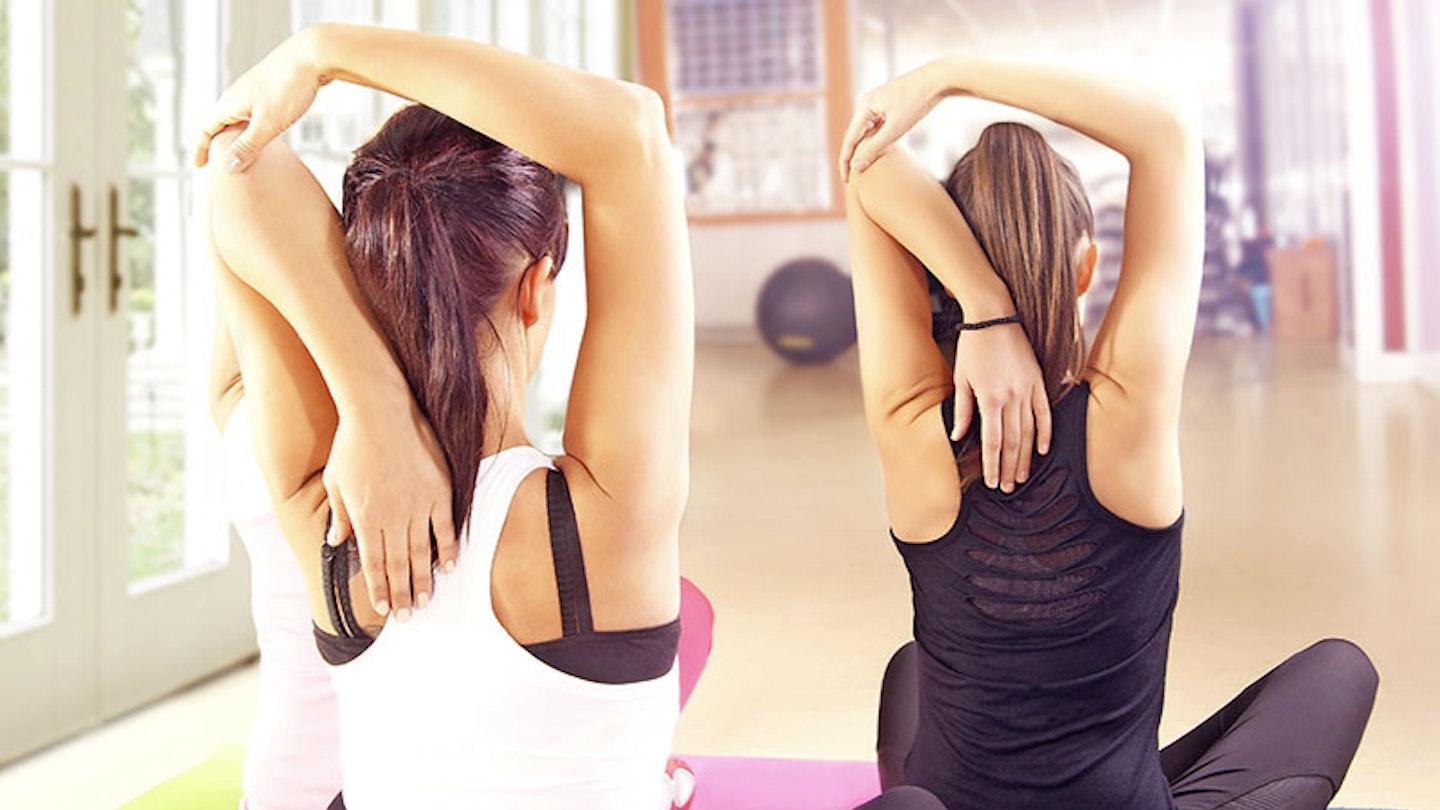Now that you’re pregnant, you might be looking forward to indulging in more of your favourite food and relaxing without worrying about fitting into your skinniest jeans. However, it’s still important to maintain a healthy diet and to get exercise where possible during your pregnancy.
Exercise during pregnancy will ensure you stay fit and healthy, as well as help you deal with stress (which there can be a lot of during pregnancy!). If you're nervous about exercising while pregnant, we've spoken to Sarah Campus, women's Personal Trainer, and Phil Curtis, fitness coach, to create a guide to everything you need to know, including how to exercise safely, the best exercises for pregnancy, where you can find them and even what you should wear.
Is exercise during pregnancy safe?
There are several myths around exercise during pregnancy and many women wrongly believe it's unsafe. However, exercise is not dangerous for you or your baby as long as you do it safely and listen to your body and know its limits. Our expert, Sarah explains. "Exercise is beneficial for most pregnant women, so long as there are no medical complications or contraindications." However, as she notes, "it is advised that all pregnant women check with their healthcare provider before starting or continuing exercise during pregnancy."
Staying active during pregnancy can mean you're less likely to experience complications or issues in later pregnancy. The NHS recommends exercising throughout pregnancy to help you adapt to your changing shape and weight gain. But to exercise safely, it is important not to over-exert yourself. The NHS guidelines explain that "As a general rule, you should be able to hold a conversation as you exercise. If you become breathless as you talk, then you're probably exercising too strenuously".
How often should you exercise during pregnancy?
The NHS recommends "beginning with no more than 15 minutes of continuous exercise, three times a week. Increase this gradually to at least four 30-minute sessions a week". Sarah agrees but also notes that the "frequency and type of exercise depends on each individual." She also advises listening to your body. "Listen to your body, rest when needed and stop exercising if you experience dizziness, shortness of breath, pain, or any unusual symptoms."
In order to keep up short but regular bouts of exercise while pregnant, it is a good idea to find something that you enjoy as you'll be more likely to stick it out! If you've lost your fitness mojo, then try switching things up, exercising with a friend or joining a pregnancy exercise class to meet mum friends.
Inactivity is bad for your health whether you are pregnant or not. So, although pregnancy seems like the perfect reason to put your feet up all the time, (putting your feet up some of the time is still recommended, as it is great for swelling) it is a good idea to aim for 30 minutes of moderate-intensity activity most days of the week. You can always break it down into small five or ten-minute sessions if that suits you.
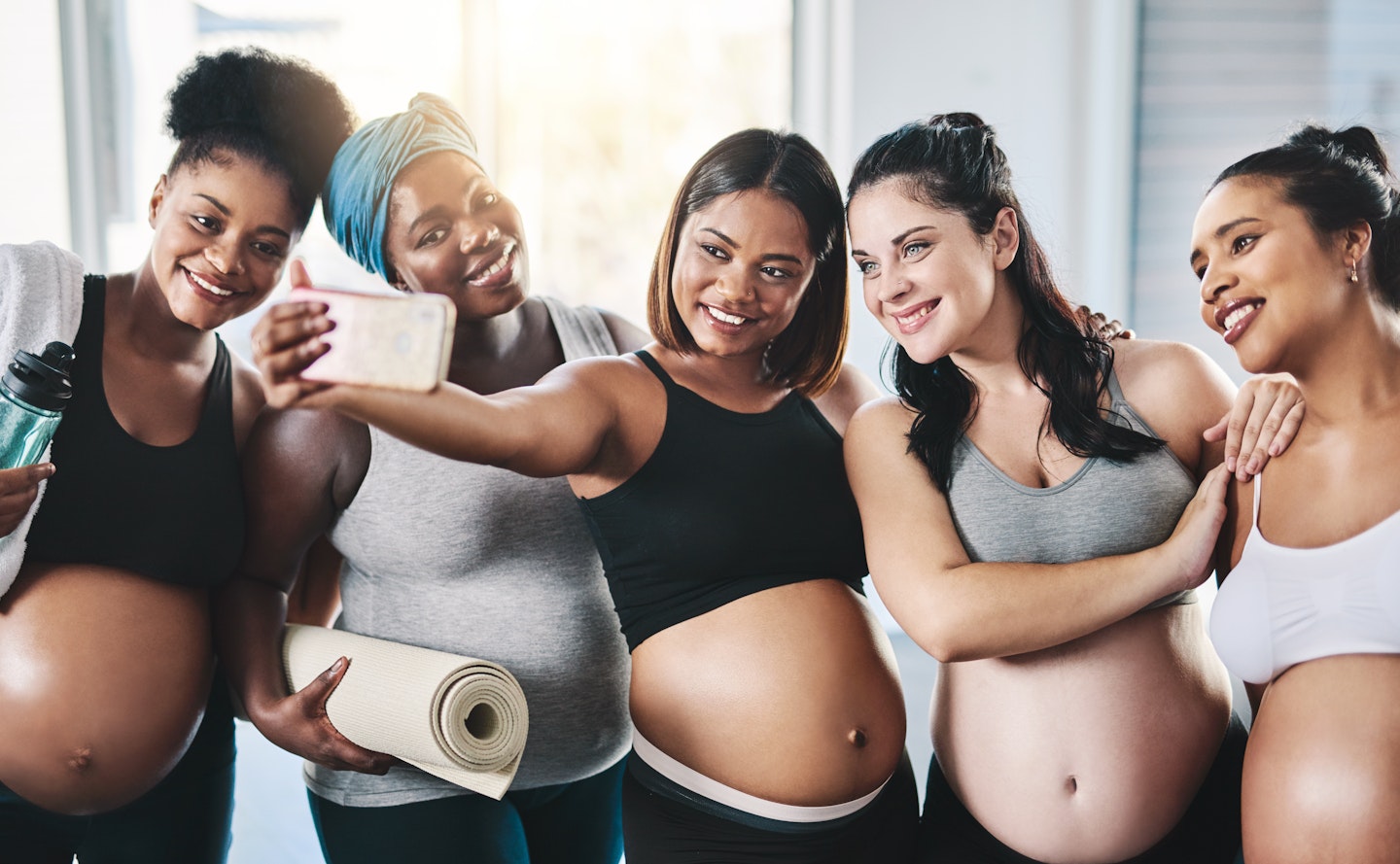
What are the benefits of exercising during pregnancy?
There are several benefits of exercise during pregnancy. It is thought to be good for your baby and may make your labour easier. It can help you both mentally and physically during this crucial and life-changing time. Plus, it can even combat certain pregnancy-related health issues such as hypertension in pregnancy. Scroll down to find out more about the benefits of exercise while pregnant.
12 benefits of exercise during pregnancy
Reduces tiredness and improves sleep
You might feel that exercise is the last thing on your mind during pregnancy if you're feeling tired and sluggish. However, regular exercise can increase your energy levels, make you feel less tired in the long run and even improve your sleep.
"Even a single 15-minute walk can give you an energy boost, and the benefits increase with more frequent physical activity," says the NHS.
Eases back pain
Many pregnant women experience back pain during pregnancy. Low-impact exercise such as yoga and workouts underwater in a swimming pool can help to relieve it.
Helps with constipation
Pregnant women often suffer from constipation due to the hormone progesterone and the strain of your growing bump. Light exercise, along with a healthy pregnancy diet can aid your digestion.
Exercise shortens the time it takes for food to pass through the large intestine meaning you get less backed up. It also speeds up your breathing and heart rate which can stimulate the natural squeezing of muscles in your intestines which means you will find it easier when you do go to the loo.
Improves your mood
Exercise is a great way to improve your mood. "Exercise helps combat fatigue, reduce stress, and improve mood by releasing endorphins" explains Sarah. If you exercise regularly, you are less likely to suffer from depression or anxiety or your symptoms could be lessened. Aerobic exercise such as walking, cycling and running are often found to give a post-workout high. Exercising outside has even more mood-enhancing benefits because it helps with your natural body clock which can have an impact on your mood.
Lower gestational diabetes risk
"Exercise lowers the risk of gestational diabetes and preeclampsia" explains Sarah. Whenever you eat, your body produces the hormone insulin, which regulates your blood sugar. During pregnancy, your body needs extra insulin and if you don’t produce enough, your blood sugar levels can become abnormally high and this is known as gestational diabetes, which can only be developed when pregnant. Gestational diabetes increases the likelihood of problems, such as high blood pressure or pre-eclampsia.
However, if you exercise during pregnancy you can lower your gestational diabetes risk. Many healthy and fit women develop gestational diabetes because age and genetics are strong factors but exercise can still help to prevent or delay the need for extra insulin or medication.
Improves swelling
Gentle exercise, like walking, is a great option for pregnant women. It doesn't put the body under too much stress and helps to increase blood circulation which will help with any swelling.
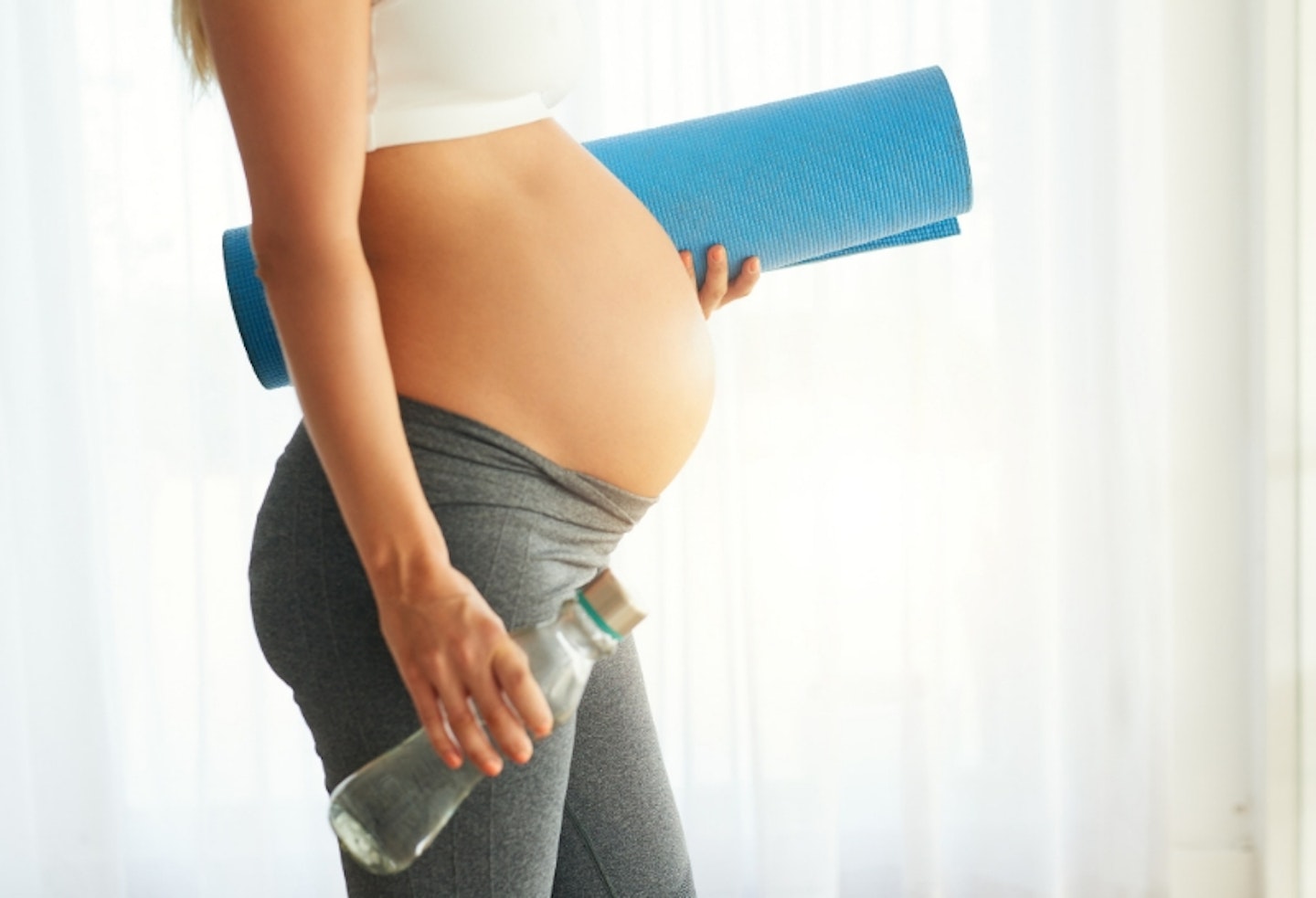
Limits weight gain
If you exercise during pregnancy, it can help regulate weight gain and ensure you progress at a healthy rate.
It could make labour easier
Sarah notes that exercising regularly "can enhance endurance and prepare the body for childbirth." Strong abdominal muscles and being fitter means you could have more strength and stamina. This should make labour a tiny bit easier!
It could shorten labour
A 2018 study30096-4/fulltext){href='https://www.ejog.org/article/S0301-2115(18)30096-4/fulltext' target='_blank' rel='noreferrer noopener'} found that women who exercised more during pregnancy spent less time in labour! The researchers found that aerobic exercise in particular had shorter labours. They were even less likely to use an epidural.
Limits the risk of pre and postnatal depression
We know exercise can increase your mood so it is logical that it can also lessen the risk of depression during and after pregnancy. Again, exercising outdoors is even better because bright light has antidepressant effects.
Strengthens your immune system
Exercising can strengthen your immune system and could have the power to protect you from certain colds and diseases.
A 2007 study in the Clinical Sports Medicine Journal found that moderate exercise had a protective effect on the body in terms of immunity.
Helps with high blood pressure
If you're pregnant and have a history of high blood pressure, or have developed high blood pressure for the first time in pregnancy then it will need to be managed to prevent complications such as pre-eclampsia. Pregnant women with high blood pressure will often be required to attend hospital for more check-ups and tests.
High blood pressure is often linked with general inactivity. Therefore, increasing your activity levels through gentle exercise could help to reduce your blood pressure naturally.
What are the dos and don'ts of pregnancy exercise?
As we've said, it is important that when you do exercise, you do it safely. If you are worried about what you can and can’t add to your pregnancy exercise routine then we're here to help. Take note of our dos and don'ts of pregnancy fitness so you know the right way to stay fit and healthy.
What are the best exercises for pregnancy?
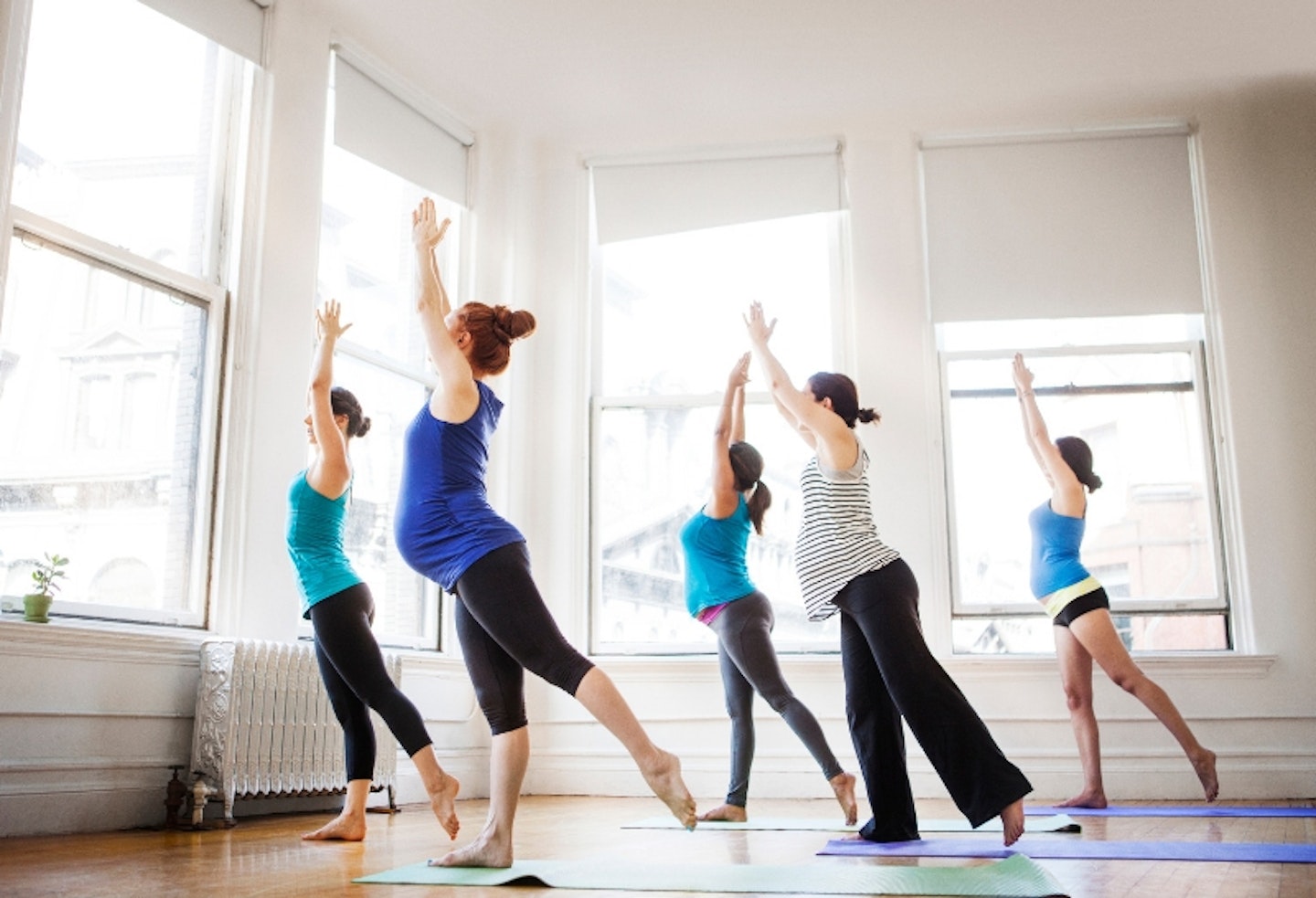
When looking for safe exercises during pregnancy there are a few factors to consider. An exercise that increases your heart rate and improves flexibility and mobility without causing physical stress is perfect. For best results, try and do a combination of aerobic exercise and muscle-strengthening exercise.
Running, walking, dancing, swimming, weight-training, cycling, pilates, aerobics and pregnancy yoga (on land or in a swimming pool) are all fantastic and totally safe exercises to do with a bump. Exercise doesn't have to be traditional - it is also a good idea to make yourself more active in general daily life. Try going for short walks (perhaps with your pooch!), taking the stairs, housework and gardening.
If you prefer exercising at home, where you can sing along to the music, get as sweaty as you want and not have to worry about getting to the gym, then a pregnancy exercise DVD might be for you. There are specialised online workout platforms like Results with a Bump, a franchise of Results with Lucy (Created by TOWIE star, Lucy Mecklenburgh) designed to help you reach your pregnancy fitness goals.
Pregnancy workouts on YouTube are another great way to keep fit in the comfort of your own home, and now we’ve all got smartphones, tablets, and smart TVs, it is easier than ever to stream and watch straight away. From Joe Wicks pregnancy workouts to yoga, there's a huge range so you'll be able to find an option that suits you.
Exercises to avoid during pregnancy
Adrenaline junkies, it’s time to go back to basics, for nine months at least! It is a good idea to avoid high-risk activities or contact sports (where there is a risk of injury and you could be in danger of falling or could hit your bump) such as squash, scuba diving, gymnastics, ice-skating, rollerblading or horse riding that you may have enjoyed pre-pregnancy. It is also a good idea to avoid exercises that involve you lying on your front after the first trimester and avoid lying on your back after 12 weeks.
If you have a personal trainer or are part of a sports team, it’s best to ensure they are aware of your pregnancy as soon as possible. This way you can work with your trainer to develop a new regime designed to work with your pregnancy, ensuring you aren’t doing anything that is unsafe for you and your baby. Before starting any new exercise or if you are unsure whether you can keep up your fave hobby, it is a good idea to consult a doctor, midwife or physiotherapist.
Can I still work out in the gym when pregnant?
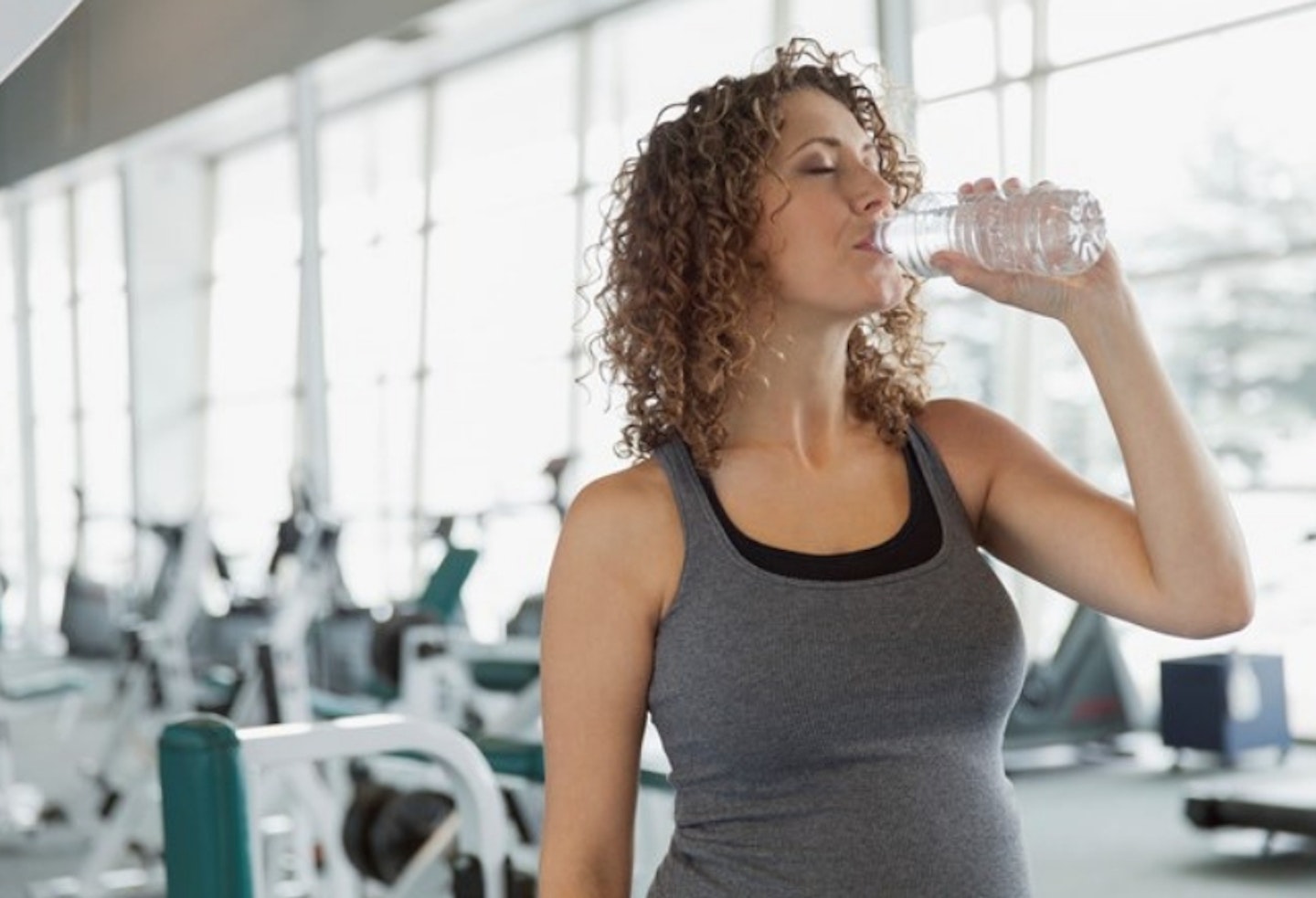
If the gym’s your thing and you want to carry on with a bump, it’s totally doable and there's no need to stop exercising. It’s just a case of making tweaks, building up gradually and getting advice. Follow our tips below...
Find your comfort zone
You may have always been a gym bunny, but a couple of adjustments to your general workout habits won’t go amiss. "You may feel more tired than before, so allow yourself extra and longer breaks," says personal trainer Phil Curtis.
As well as the obvious water and light clothing, let your gym instructor or manager know you’re pregnant in case you need help.
Talk to the professionals
If you’re not sure how to adapt your routine, ask a prenatal instructor for ideas or join an antenatal class – even if you only go once, you can still get some tips.
"Most gyms also offer a review of how you’re doing every six weeks or so," says Phil. "Many members don’t actually take this up, but it’s a great way to see how you’re getting on, especially as your pregnancy progresses."
Be workout smart
Experts agree that if you’ve already been doing a type of workout, there’s no harm in carrying it on (albeit with the odd tweak) in pregnancy. But if you want to take up something new, get advice and approach it gently – it’s just another thing for your body to handle.
"Certain moves aren’t always best for pregnant women, including sit-ups and crunches," says Phil. "They put pressure on your spine and don’t really do anything for your core or back strength, which are areas you want to protect right now."
Interval train for labour
You know that whole giving-birth thing you have coming up? An interval-based workout can help your body get ready for it.
"This is basically short bursts of any type of exercise – so cross trainer, bike, treadmill and co – followed by recovery periods," says Phil. "It’s similar to how labour works, which is why training in that way can help you prepare."
Understand weights
Lifting weights while pregnant is fine but, as with anything, what you do may need taking back a notch – especially as you get bigger and you may lose your balance when you might not have before. Also don’t head straight for the benches if you’ve never done a weight in your life or aren’t sure what you’re doing.
"The moves you do with weights could also need more support, so if you’re struggling with squats, perhaps take it back a stage and use the leg press," says Phil.
And those pesky hormones get involved, too. "Relaxin softens your joints to help prepare your body for labour but, in doing this, it makes them less stable," explains Phil. "So, be wary of moves like lunges which put pressure on your hip joints because they’re going in different directions."
Extend your cool down
This goes for your warm-up, too – so about 10 minutes for each. "Because of everything else your body is coping with, it just takes that bit longer to get ready for exercise and then cool you down afterwards," says Phil.
Also, give the steam room a miss. "Your pregnant body is actually amazing at dispersing and getting rid of heat that it creates, so when you’re working out for example," says Phil. "But, in a hot atmosphere, it has nowhere to get rid of this heat, so you may feel unwell or faint."
Another good option at the gym is pregnancy exercise classes. Pounding the treadmill isn’t everyone’s cup of tea, which is why doing fun and sociable maternity exercise classes can be the perfect option. There are plenty of pregnancy-specific classes that are suitable for mums-to-be which still give you the workout your changing body needs. Just make sure that ask your instructor any questions you have about the class and you make them aware of any health issues, so they can safely tailor your workout.
What exercises prepare you for labour and being a new mum?
When deciding on what exercises to do during pregnancy, a good way to start is to focus your efforts on exercises that will strengthen the muscles you need during labour and for when you are a new mum. You need strong abs for the birth, powerful legs and core to help you carry the extra pregnancy weight and a toned back and arms to ease the strain of regularly lifting your new one when they are born! Focus on simple repeated exercises and relaxing stretches that will help you strengthen your muscles and improve flexibility and balance.
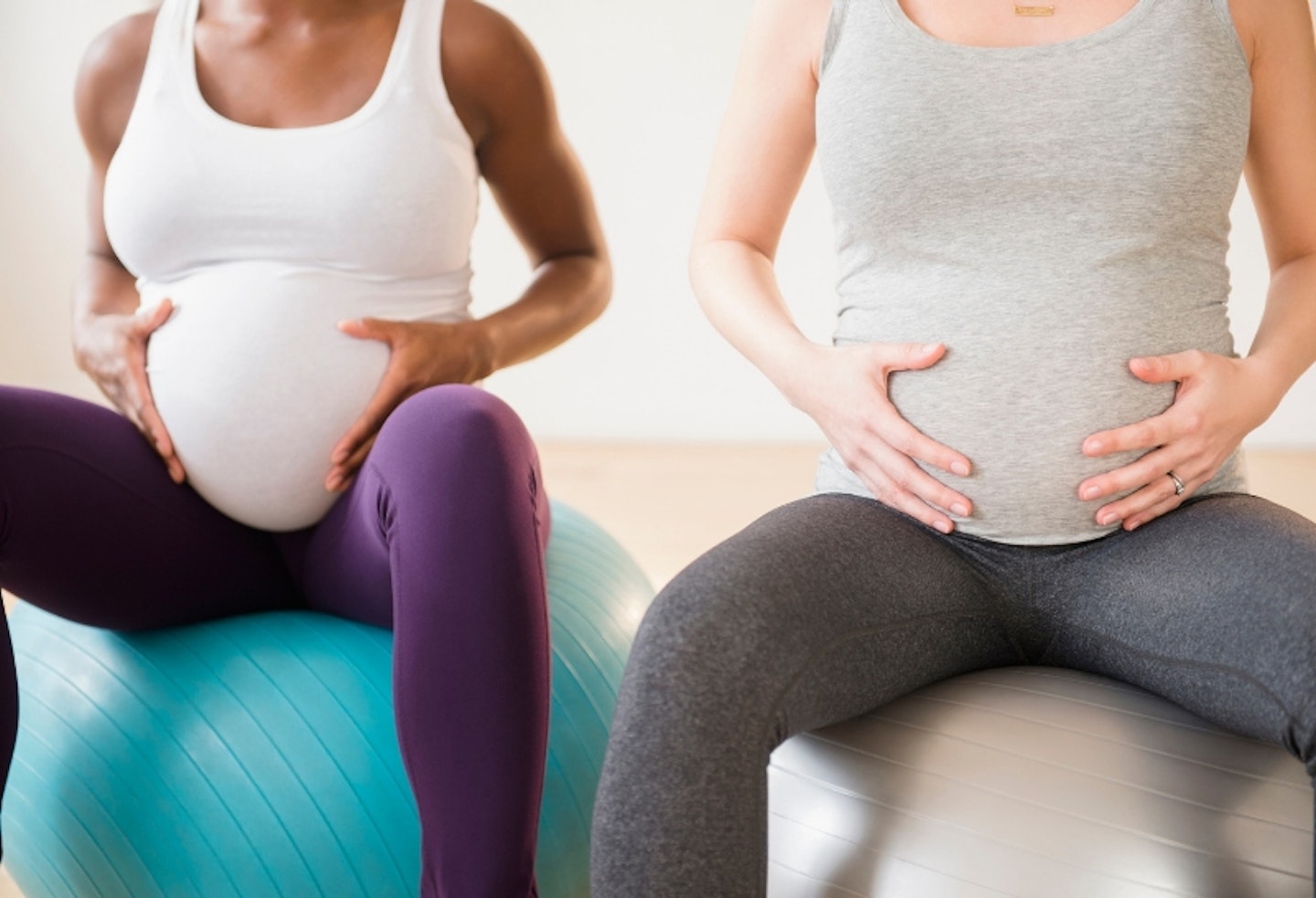
Should I do pelvic floor exercises when pregnant?
As a mum-to-be, you'll probably have heard all about pelvic floor muscles, but you may not know that if you exercise your pelvic floor in pregnancy it can help ease problems during as well as after your pregnancy.
Made up of muscles and tissue, your pelvic floor can stretch under a lot of weight and spring back up again. "Visualise a hammock of muscles running from your pubic bone, back between your legs and into the bottom of your spine," says pregnancy fitness specialist Alison Merry.
During pregnancy, the muscles and tissues can become exhausted with all the effort of bearing weight for so long and can prolapse – which is why certain exercises can help strengthen the area before your baby arrives. These pelvic floor exercises will also keep the entire area strong and help prevent possible incontinence problems after you’ve given birth.
You can do simple squeezing or clenching, sometimes known as Kegel exercises, or pelvic tilts to prepare you for labour and beyond. Or try using a pelvic floor trainer designed to help you regain some strength and control down there!
Fitness apps for mums
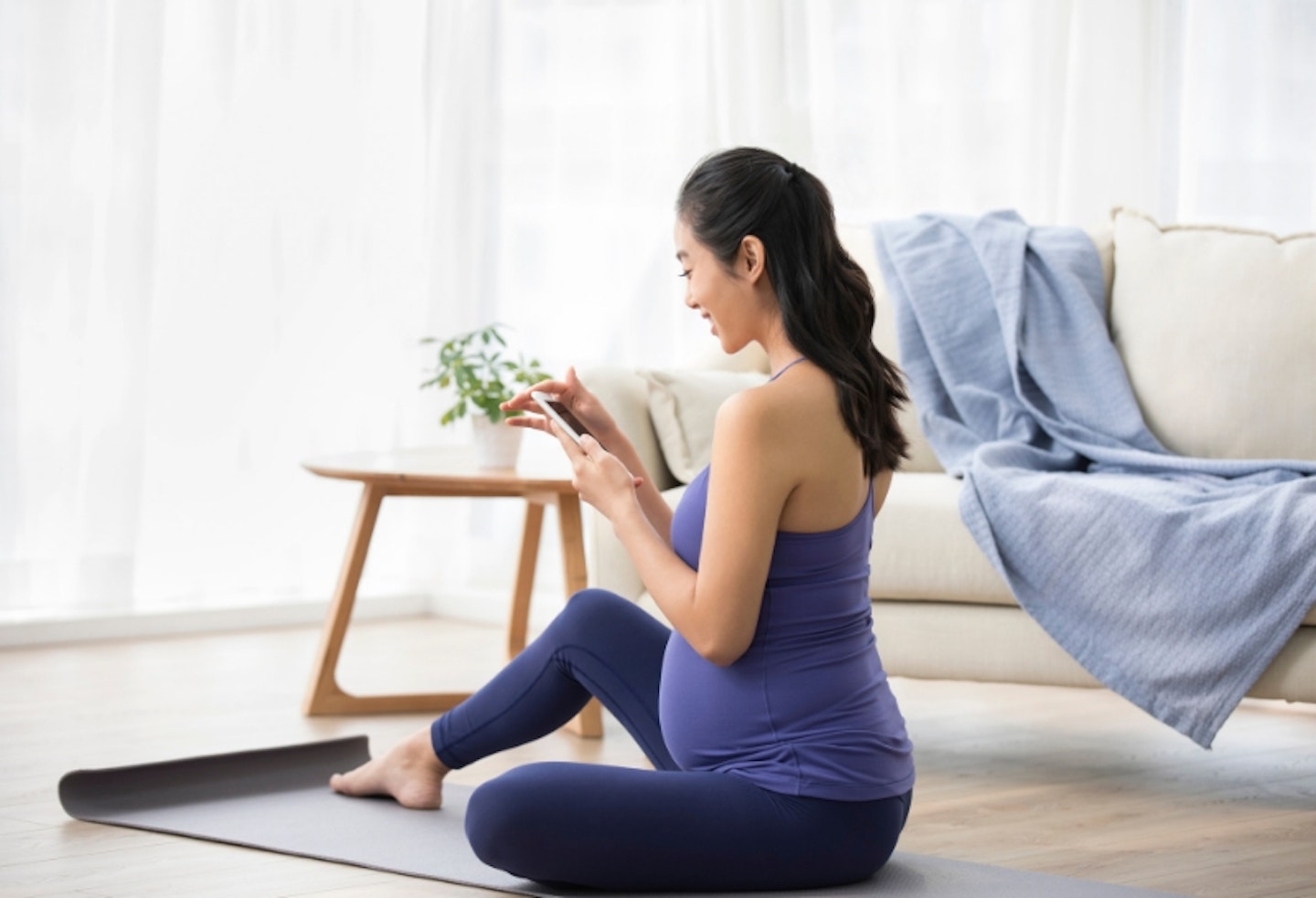
Most mums find maintaining a work-life balance hard enough as it is, let alone trying to fit a complicated (and expensive) exercise regime into an already jam-packed week. So forget rushing to make it to your gym class and try the fitness apps specially designed for mums so they can work out at home. There are loads of pregnancy apps with weekly workouts, tailored videos and strengthening exercises to guide you with no fuss and some with no cost!
What should I wear when exercising while pregnant?
Once you’ve decided to soldier on with pregnancy exercise, the last thing you need is to find none of your regular gym clothes fit. Rest assured maternity gym clothes can be just as stylish as your current Sweaty Betty get-up. You can even get specialised pregnancy gym gear, like support belts for your back and bump, to keep you safe and feel comfortable during exercise.
About the experts
Sarah Campus is a highly qualified women's PT, Nutrition Coach, mum of 3 and founder of LDN MUMS FITNESS. With qualifications in Exercise and Nutrition, she's a Level 2 and Level 3 qualified Personal Trainer and Gym Instructor, and regularly features on TV and in Magazines as a fitness and holistic wellness expert, offering tips and advice to keep the whole family healthy and active. You can follow her on Instagram @sarahcampus
Personal trainer and founder of Happy Beautiful Health, Phil Curtis specialises in helping people lose weight in a sustainable and enjoyable way. He prides himself on his level of support and positivity. Phil is an expert at making change easy so you can live the healthy, active lifestyle you want.
A journalist since 2015, Emily Gilbert is the Features & Reviews Editor for Mother&Baby and has written for the website and previously the magazine for seven years. Emily writes about everything from the top baby products to pregnancy, fertility and maternal mental health. Specialising in product reviews, Emily is the first to know about all the exciting new releases in the parenting industry.
